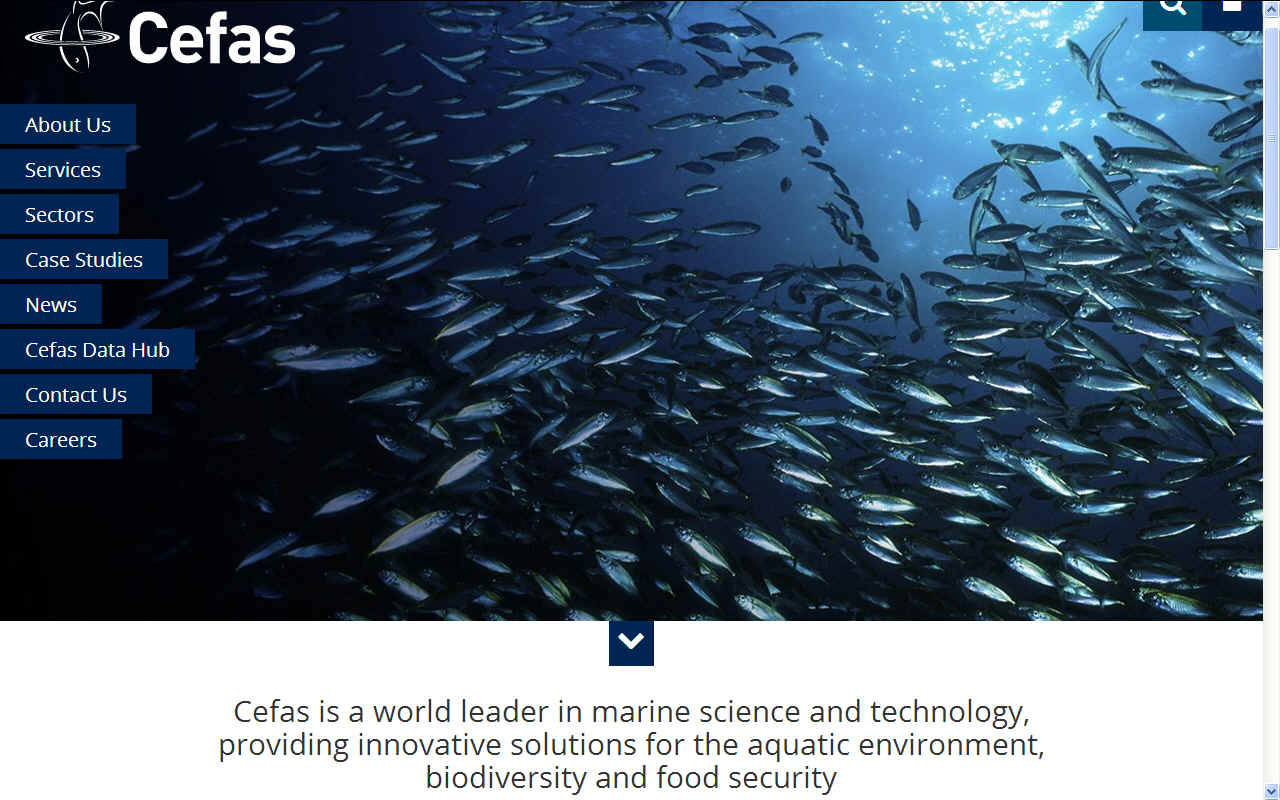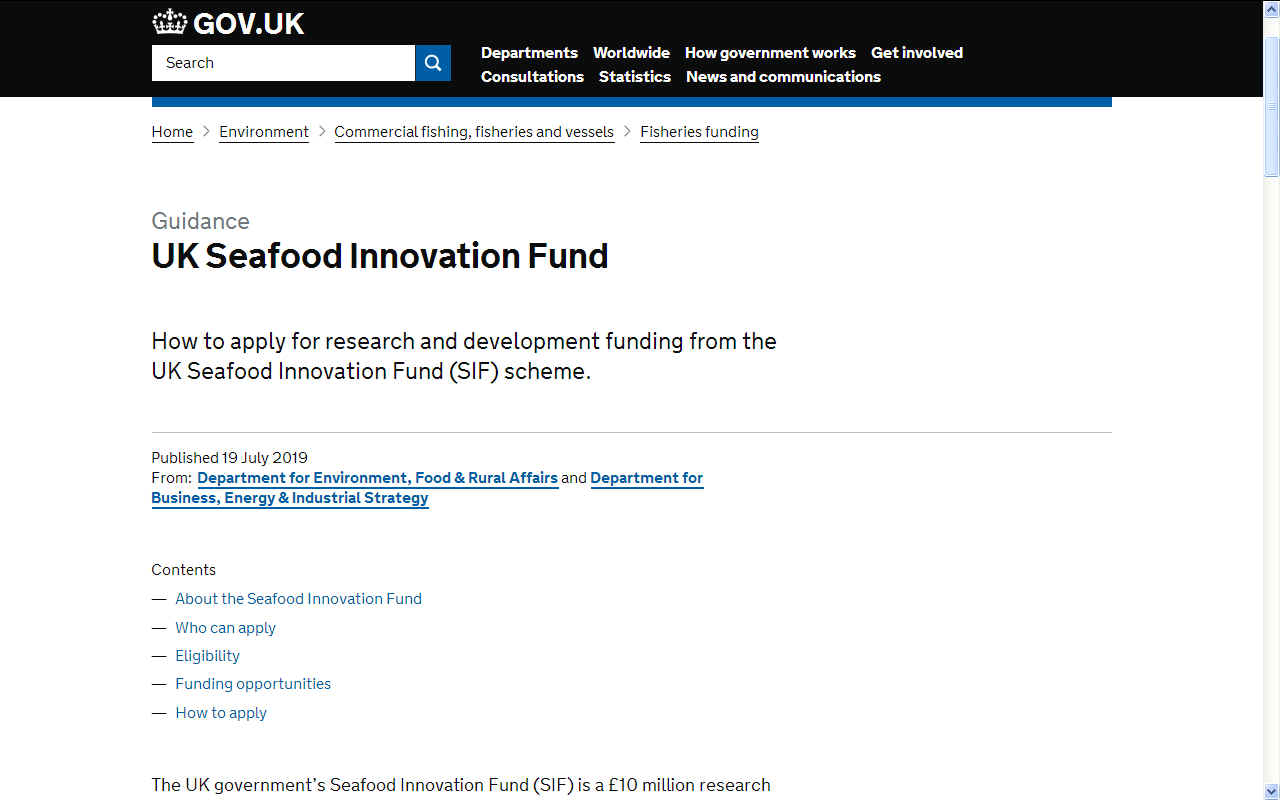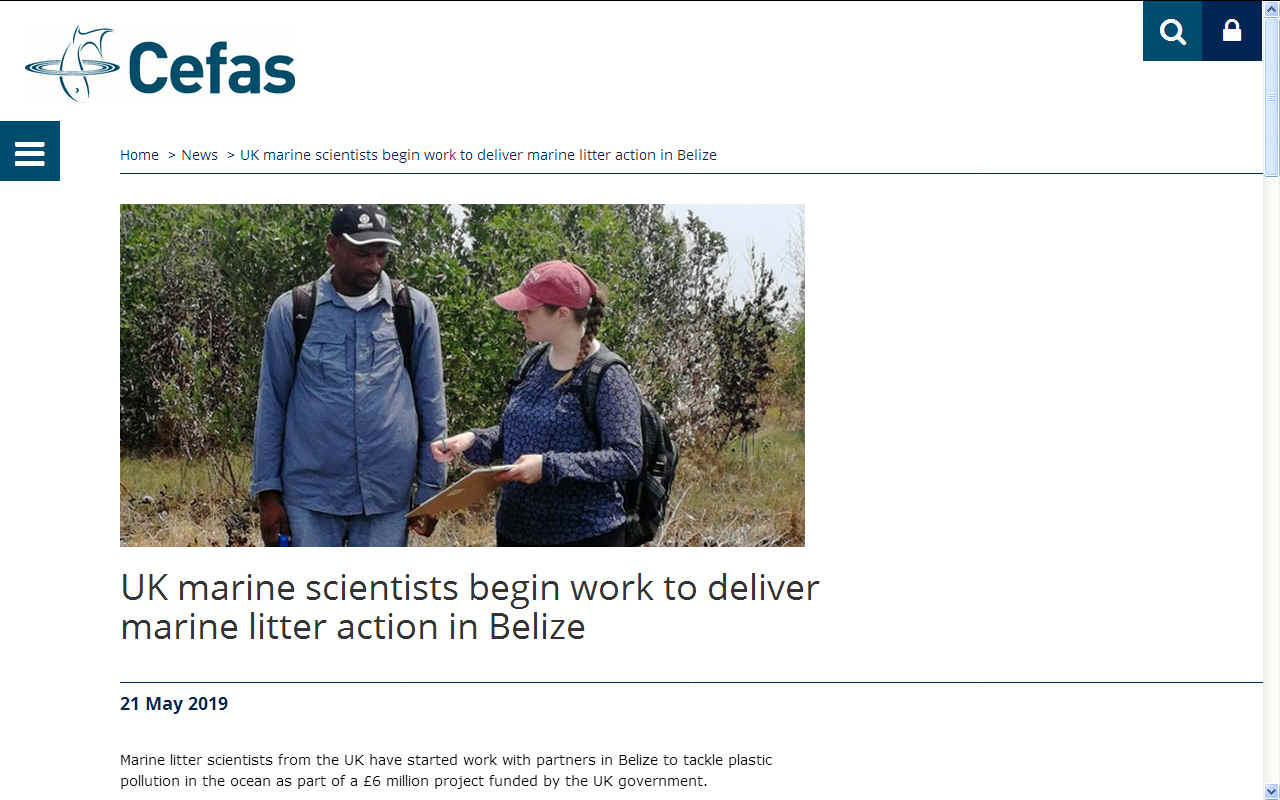
FOOD
SECURITY - CEFAS is a world leader in marine science and
technology.
The Centre for Environment, Fisheries and
Aquaculture Science (Cefas) is a world leader in marine science and technology, providing innovative solutions for the aquatic environment,
biodiversity and
food security.
They are the UK’s most diverse centre for applied marine and freshwater science and research, covering an unrivalled breadth of specialist areas to provide a fully integrated, multi-disciplinary approach to
their customers’ needs.
Their customer base is diverse, including the UK government and UK Overseas Territories, international governments, public and private sector organisations, educational and research institutions, as well as non-governmental organisations.
They work with industries across a range of sectors including:
- Aquaculture
- Fisheries
- International government capability development
- Marine and coastal infrastructure
- Nuclear energy
- Offshore renewable energy
- Oil and
gas
- Shipping
According
to their website their partnerships with governments, industries and scientific organisations, both in the UK and around the
world, help create and secure healthy and sustainable marine and freshwater environments.
They are proud of their track record and the wide range and scale of projects
successfully delivered.
Over the past decades, Cefas has evolved from a small fisheries laboratory in Lowestoft, founded in 1902, to the international organisation it is today. The Lowestoft site now hosts
their headquarters, with around 530 people employed nationally between the laboratory sites in Lowestoft and Weymouth as well as
their small, port-based offices in Scarborough, Hayle and Plymouth.
They
also have a dedicated team of experts in Kuwait and Oman to meet the needs of
customers in the Middle East.
Their services are comprehensive. Their experienced teams are used to tailoring
service provision to meet the needs of customers.
- Research, Advice and Consultancy
- Emergency response
- Laboratory services and analysis
- Modelling
- Programme management and training
- Specialist surveys
- Technology

MARINE
LITTER PROJECT IN BELIZE - 21 May 2019
Marine litter scientists from the UK have started work with partners in Belize to tackle plastic pollution in the ocean as part of a £6 million project funded by the UK government.
Experts from the Centre for Environment, Fisheries and Aquaculture Science (Cefas), part of the UK government, are working alongside colleagues in Belize to identify country specific solutions to problems posed by marine litter, including reducing our reliance on
single-use
plastics, improvements in waste management, and developing more sustainable life cycles for plastics.
In recent years, the serious issue of marine litter and plastic pollution has been recognised by international governments and organisations, as well as local communities, as a growing threat to the marine environment and people’s livelihoods. It will form a key part of the UK and Vanuatu led Commonwealth Clean Ocean Alliance (CCOA), launched at the April 2018 Commonwealth Heads of Government Meeting (CHOGM) held in London. The alliance unites countries around the Commonwealth in their shared ambition to tackle plastics in the marine environment. To support this, the UK government are funding the Commonwealth Litter Programme (CLiP) to help share expertise and solutions.
Funded by the UK government’s Department for Environment, Food and Rural Affairs (Defra), the programme will bring together scientists, policy makers and communities around the world to identify actions which can be taken to stop plastic entering the marine environment, remove existing litter from the environment and raise awareness of what individuals and society can do to protect our marine habitats and wildlife.
Scientists from the UK are working with their colleagues across the Belize government, regional organisations, academia and community groups, to develop ideas and actions which support existing efforts, and will enable them to further achieve their ambitions on tackling plastic pollution. The programme will collect data, develop best practices and create a network of people, groups and communities across which these solutions and ideas can be shared. A contest will also be held to showcase the innovative ideas being developed by youth and Belize enterprises.
UK Environment Minister Thérèse Coffey said:
“Plastic pollution is a global challenge, which requires global action. I’m proud to say the UK is at the forefront of this challenge and it is fantastic to see world-leading UK scientists joining their Commonwealth counterparts in the fight against the blight of plastic in our ocean.
“Building on the success of the projects in the South Pacific islands, I look forward to seeing what can be achieved in Belize with the collective power of the Commonwealth”.
Cefas’ principal marine litter scientist, Thomas Maes said,
“The Commonwealth Clean Oceans Alliance will harvest the collective power of the Commonwealth to protect our marine environment for
future
generations.
“Protecting our marine environment is a global challenge which requires global action. The Commonwealth Litter Programme (CLiP) is a fantastic opportunity to train scientist worldwide, eventually building capacity in the international fight to tackle marine litter.”
Belize is the third country to receive support through CLiP and the team will bring their experiences from the first phase of the programme which took place in the two South Pacific island nations of Vanuatu and Solomon Islands. During the first phase the CLiP team set up scientific monitoring of beaches, trained local scientists to use new laboratory facilities and recovered 15,000 items of litter.
The Honourable Minister of Agriculture, Fisheries,
Forestry, The Environment and Sustainable Development, Dr. Omar Figueroa said:
“It is important to tackle marine litter at its source, to protect Belize’s beautiful environment, rich biodiversity, vibrant maritime economy and fantastic visitor destinations. I see a clean marine and aquatic environment as critical to Belize’s sustainable development and that of the wider region. Belize is pleased to join the
UK and other countries working together on this through the
Commonwealth Clean Oceans
Alliance.
“My Ministry is collaborating with CLiP to build evidence-based expertise in country to tackle this problem. An experience, ultimately, I hope we can share with our neighbours and the wider region to help keep this global problem in check. I am delighted that the knowledge generated under CLiP will help to further position Belize as a global leader in tackling plastic pollution.”
The British High Commissioner, Her Excellency Claire Evans said:
“I am thrilled that the UK and Belize are working together to tackle the important issue of marine plastic pollution. The Commonwealth Litter Programme will see scientists from both nations work with communities, government and other groups to ensure we can all help keep our seas clean for our future generations to enjoy the Belizean coastal and marine environments.”
Cefas and Coastal Zone Management Authority Institute (CZMAI) scientists have begun taking samples of water and sediments to test for microplastics and on Monday 20th May representatives from government and community groups met to discuss how to share findings from the programme.
Scientists will be in country until the end of July, working with local colleagues and stakeholders to monitor litter, clean beaches and raise awareness of actions which can be taken.
A final conference in July for wider Caribbean stakeholders will summarise findings and share potential solutions for the region, and wider CLiP activities other Commonwealth countries around the world.
Beyond July, as the programme expands to other parts of the world, networks will be developed to ensure that any further ideas can be shared back to the Caribbean for consideration.

CONTACTS
Pakefield Road
Lowestoft
Suffolk NR33 0HT
Tel: +44 (0) 1502 562244
The Nothe, Barrack Road
Weymouth
Dorset DT4 8UB
Tel: +44 (0) 1305 206600
Home
About Us
Services
Sectors
Case Studies
News
Cefas Data Hub
Contact Us
Careers
Cefas
Personal Information Charter
Services
Research, Advice and Consultancy
Emergency Response
Laboratory Services and Analysis
Modelling
Programme Management and Training
Surveys
Technology
Sectors
Aquaculture and Food Security
Aquatic Poduct Evaluation
Fisheries
Higher Education
International
Government Capability Development
Marine and Coastal Infrastructure
Offshore Renewables
Oil and Gas


